(Week of August 19, 2013) Most Americans seem to agree with last week's federal court decision that New York City's stop and frisk law, which said police officers could stop, question and frisk anyone they deemed suspicious, had constitutional problems. By five to three, those in the latest Economist/YouGov Poll believe the law violates constitutional protections against unreasonable search and seizure.

Similar percentages also say the law leads to racial profiling, also agreeing with Judge Shira Scheinlin, who said that the number of stops in minority areas led to officers routinely stopping “blacks and Hispanics who would not have been stopped if they were white.”
All racial groups agree on that, although blacks and Hispanics are especially sensitive to the possibility of this law profiling minorities.
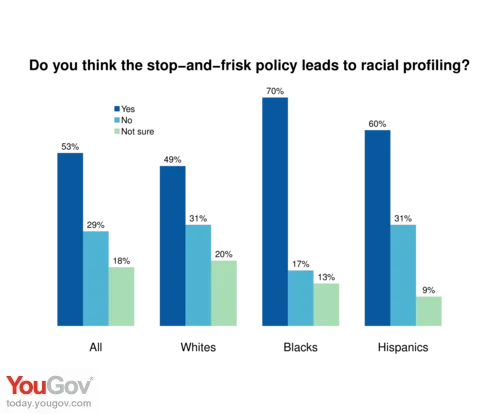
One thing the law does not necessarily do is prevent crime. By 37% to 30% Americans think it does not. According to the 25% who say they have heard a lot about the law, it works. A majority in this group say the stop and frisk law has led to a decrease in crime.
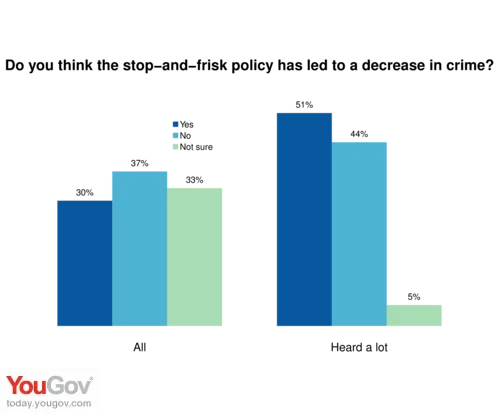
Americans do not like New York City’s policy: by 43% to 38% the public disapproves of it. Republicans are more than twice as likely as Democrats to say the law is a good idea.
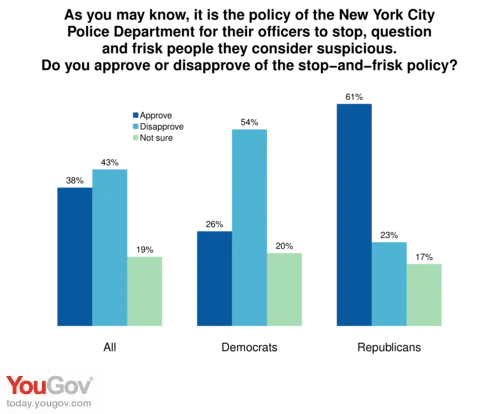
Unlike the rest of the country, Republicans do not see many flaws with the stop, question and frisk policy. Just about half do not think it violates constitutional rights or leads to racial profiling. By 43% to 25%, Republicans say it has prevented crime.
Despite the public rejection of stop and frisk laws as a crime preventer, the rate of violent crime in the United States has dropped considerably in the last 20 years – and so have Americans’ concerns about crime. Yet many – especially Republicans - still see the crime rate increasing. 44% overall – and 62% of Republicans – say the crime rate in the United States has increased in the last year.
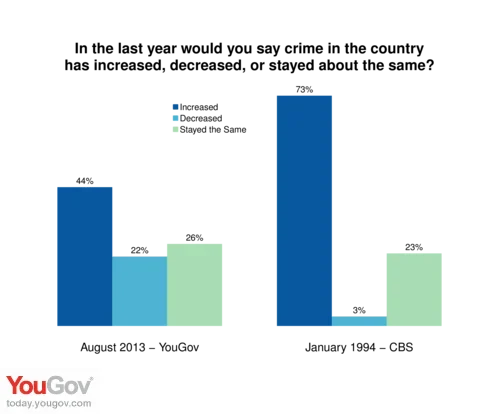
There are many places in the country with crime rates much lower than the country’s. Americans see little difference between the crime rate nationally (and outside their own communities) and the rate in their own home area. 39% say the crime rate is increasing where they live. That is down 19 points since 1994, but the rate of violent crime since then has been cut just about in half. Whites and Hispanics are somewhat more likely than African-Americans to think crime in their local community has increased.
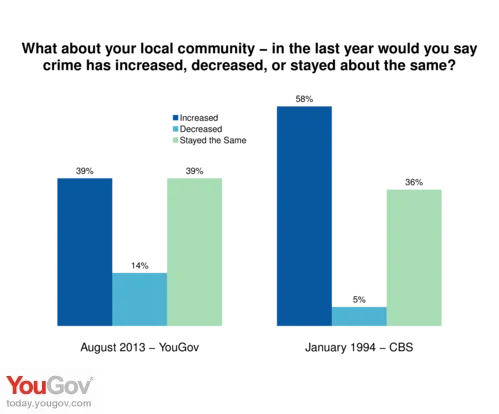
In 1994 there was a much larger gap than there is today between the perception of crime locally and nationally. Westerners are the most likely to say local crime has increased in the last year; those in the Northeast and the South are the least likely. The Northeast is the region least likely to think that crime has increased nationally. However, Northeastern residents are not willing to credit stop and frisk policies with a drop in crime.
Images: Getty







